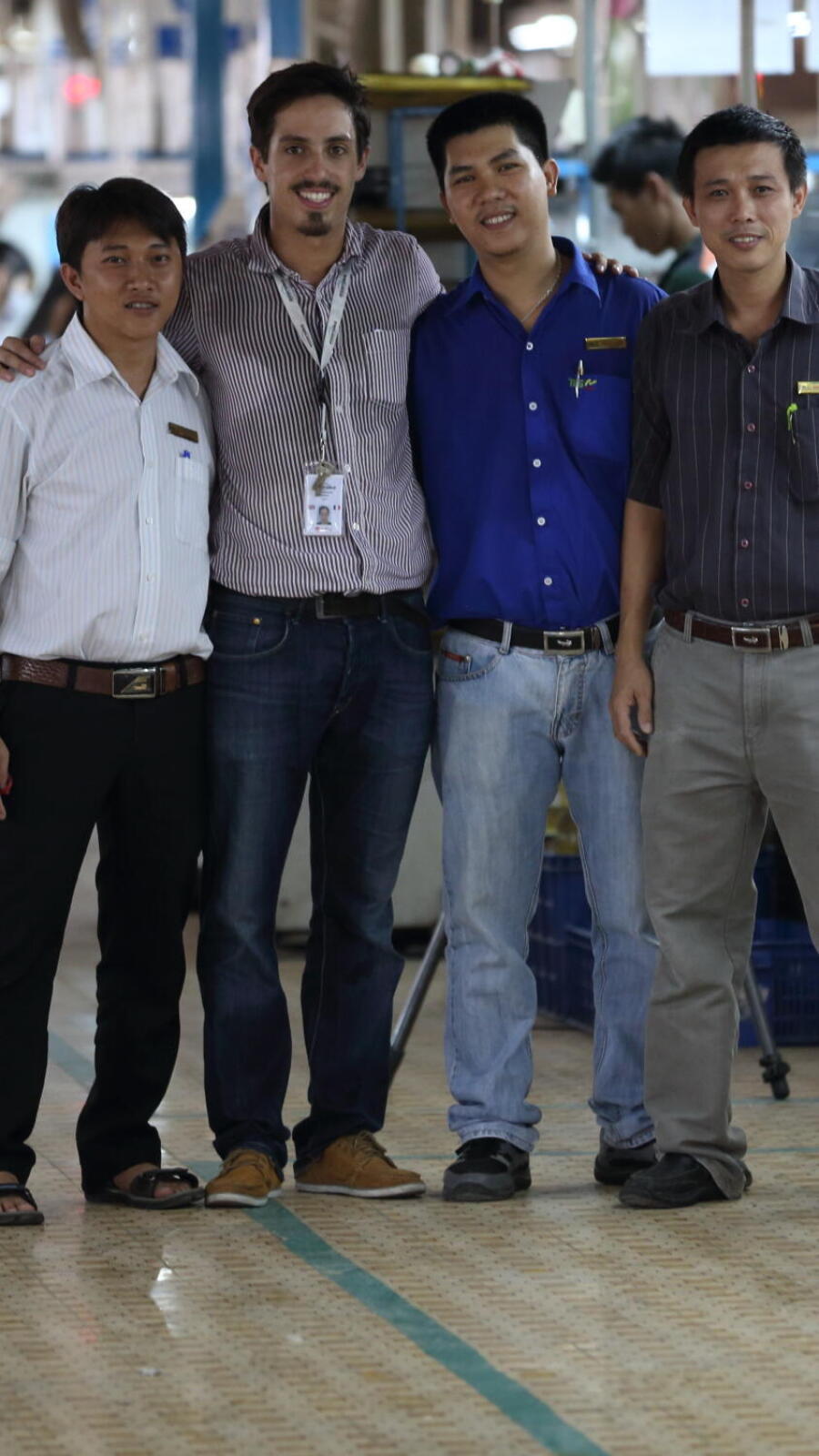Suppliers & DECATHLON: our commitments
With our direct suppliers, we share common commitments which focus on two areas: respecting workers and the environment.

At DECATHLON, we imagine and design our products. We are therefore responsible for the way they are mass-produced. Our goal is to make them available worldwide and to as many people as possible. This commitment includes respecting the rights of people who produce these goods, as well as limiting our suppliers' environmental impact.
With our direct suppliers, we share common commitments which focus on two areas: respecting workers and the environment.

Code of conduct and audits on the ground
Aligned with its values of responsibility, DECATHLON has always considered human safety and rights as priorities. Detailed in its Vigilance Plan and its Code of conduct for manufacturing suppliers, DECATHLON’s mandatory minimum requirements concern, among others, the conditions of fair and safe work.
These requirements are controlled by regular audits: in 2023, 851 industrial audits for human responsibility in production and 137 environmental audits were conducted.
These audits also focus on environmental issues, by analysing what is implemented to reduce and prevent the environmental impact on communities in the areas surrounding the factories (water and air pollution, and soil contamination).
Depending on the information collected throughout the audit, a rating ranging from A to E is assigned to a factory. This rating allows us to define a trajectory to work on making improvements. It is not about dismissing the non-compliant factories but instead supporting them in taking better consideration of workers well-being and the impact on the environment.
In 2014 we deployed the BES project (Building and Electrical Safety) in Bangladesh, to assess suppliers on structural, electrical and fire safety. Through the BES project, we undertake building safety focused audits with an external specialized third-party (Bureau Veritas) for all our tier-1 & strategic tier-2 suppliers. In addition, building safety audits are mandatory in the opening procedure of our suppliers in Bangladesh.
Our CO2 trajectory
Contributing to the fight against climate change is about ensuring that each measure taken, each decision made is relevant. We are, therefore, working on this topic collaboratively with renowned scientific experts and stakeholders. We have subsequently shared our CO2 trajectory with the SBTi (Science Based Target) initiative, which approved it in several areas.
The end goal is to align ourselves with the trajectory of worldwide greenhouse gas reduction in emissions and maintaining global warming below 1.5 °C. This objective was set by the Paris Agreement during the COP21 in 2015.
Our energy consumption
We have joined the RE100 initiative, and we are committed to sourcing 100% of our electricity from renewable sources by 2026. This effort contributes to reducing our CO2 emissions.
UNFCC
In September 2019, we joined the UNFCCC (United Nations Framework Convention on Climate Change) initiative. We are, with the other signatories, increasing our efforts to stop the use of coal. We are subsequently committed to stopping the installation of new coal burning furnaces by our direct suppliers of finished products and components no later than 2025.

A large number of players are involved all along our product manufacturing chain. We need to guarantee all these players have decent working conditions while involving our suppliers in the reduction of their environmental impact.
These players are distributed throughout a compact and sometimes complex network. This is why we are always looking to find and establish common commitments with our suppliers so they themselves can drive their own suppliers. And show the example within a virtuous circle!
Our goal is to ensure that the suppliers of our suppliers, also involved in manufacturing our products, are in agreement and aligned with our requirements. It is by way of relationships referred to as “partnerships” that we are making progress. It is a contract based on sustainability, trust and commitment.
Number of production sites concerned by Responsibility in Production assessments (as of 31/12): 1,272
- Number of Rank 1 production sites concerned : 1,009
- Number of Rank 2 production sites concerned 263
- Number of HRP assessments conducted nternally : 74%

We have published our Extra-Financial Performance Statement every year since 2013. This document lists all our sustainable development initiatives.